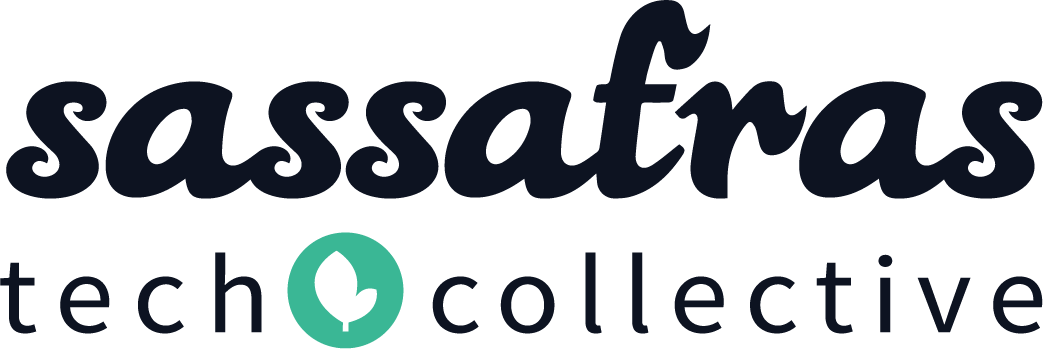Divesting from harmful tech

Over the past few months, we at Sassafras have been working hard on divesting from large corporate technologies. There is no shortage of reasons to do this: we see how tech giants consolidate power and abuse their resources to perpetuate heinous violence against our trans kin, protect and perpetuate white supremacy, influence international news cycles, and censor marginalized communities, including but not limited to sex workers, Palestinians, undocumented folks, and BLM activists. We know to expect more of this behavior, not less, especially given growing state repression, such as targeted violence against folks seeking abortion or folks participating in mass movements like #StopCopCity.
Together, Amazon, Microsoft, and Google capture 65% of the market share for cloud hosting services, and this number will only continue to grow if we don’t collectively do something about it.
As custom software developers, there are so many factors to consider when trying to invest in alternative digital infrastructures, especially when our co-op relies on stability and consistency in order to fulfill client requests. Our goal is not to provide prescriptive recommendations for the absolute least harmful tools and services, but rather to highlight and uplift alternatives that we are experimenting with and curious about to explore other ways of going about our wage labor that are less harmful and that better align with our values.
Tools we’re trying
May First
Provides cloud file hosting as an alternative to Google Drive (Docs, Sheets, etc.) and cloud web hosting as an alternative to Amazon AWS (especially if you have a simple site like WordPress). They also offer email services. May First is also a transnational member cooperative! We love supporting their work and are using their hosted NextDrive as an alternative to Google Drive.
BigBlueButton via CommunityBridge
For video conferencing, there are lots of reasons to avoid Zoom. We use BigBlueButton, which has a ton of cool features for presenting and collaborating, and it’s open-source. CommunityBridge hosts a BBB instance for us (thanks Micky for all the work you do to help keep us safe!)
Bitwarden
For organizational password management, we use Bitwarden, an open source password manager with permission management as well. It’s worked out better for us than LastPass, which has had increasing security breaches and is owned by private equity.
Signal
We use Signal for sharing credentials like passwords. It’s an encrypted messaging app like WhatsApp, but not owned by Facebook.
FireFox and DuckDuckGo
For search and web browsing, instead of using Chrome with the Google Omnibar, most of us use FireFox and set our Omnibar to use DuckDuckGo by default. Contra Chrome is an excellent, short web comic that explains the reasoning behind this.
Matomo
Free and open-source web analytics without the security compromises that come with tools like Google Analytics. Matomo doesn’t even require a GDPR popup because it’s not invasive enough to qualify. We use it to understand which pages of a website are most popular, which keywords are used to find a site on search engines, and which pages are slowest to load. All this data stays safely on the web server itself instead of being fed on by ad engines like Google or Facebook.
GitLab
We host our own instance of GitLab for code collaboration. Not only does using GitLab divest from Microsoft’s GitHub, but it also prevents our code from being slurped up by ML models.
This list just scratches the surface of what’s available. Free and open-source software doesn’t profit companies, so it’s rarely advertised. You may also have luck finding alternatives via switching.software’s website.
